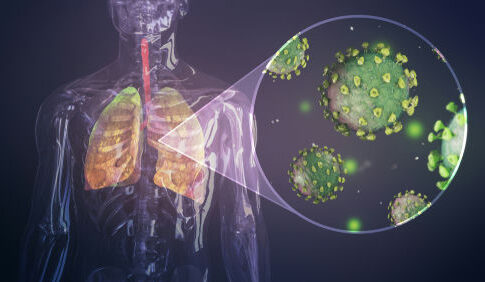While Americans celebrate restored border security under President Trump, a silent threat—Chagas disease—spreads unchecked due to years of lax immigration and neglected public health enforcement.
Chagas Disease: An Imported Threat Ignored for Too Long
Chagas disease, caused by the parasite Trypanosoma cruzi, has been a scourge in rural Latin America for over a century but is now increasingly detected in the United States. This shift is no accident. Past administrations’ open border policies and neglect of immigration enforcement allowed vectors like the kissing bug to cross into new territories. These insects, which thrive in cracks and poorly maintained dwellings, now threaten communities in Texas, California, and beyond. The disease’s expansion demonstrates the real-world costs of globalist, unvetted migration and underlines why border security is not just about sovereignty but public health.
The American public’s awareness has lagged dangerously behind the science. While Trump’s administration prioritizes American safety and sovereignty, the consequences of years of underenforced borders and unchecked migration are now visible in the rise of locally acquired Chagas cases. The silent, chronic progression of this disease—often undiagnosed until it causes irreversible heart damage—epitomizes the dangers of sacrificing constitutional duty and national security for so-called “woke” humanitarianism that disregards the health risks imported with illegal immigration.
How Chagas Disease Spreads and Who Is at Risk
Kissing bugs transmit the parasite through their infected feces when feeding on humans or animals, commonly at night. The bug’s bite is often painless, and the infection can remain silent for years. Yet, up to 45% of chronic cases develop severe cardiac or digestive complications, sometimes decades after exposure. Initially, most patients have no symptoms, allowing the disease to infiltrate communities undetected. Recent U.S. community science programs, particularly in Texas, have collected thousands of kissing bugs—over half of which carry the parasite. This underscores not just a medical risk but an urgent call for vigilance in defending our borders and homes from foreign threats.
Domestic animals, especially dogs, can also harbor the parasite, serving as reservoirs that perpetuate transmission cycles. The risk is particularly acute in rural and peri-urban areas where housing conditions and animal shelters offer ideal habitats for kissing bugs. Migrant communities and southern U.S. residents are disproportionately affected, but the threat does not stop there. As the disease’s reach grows, all Americans—regardless of region—face exposure, especially as climate and demographic changes accelerate vector expansion. This reality highlights the necessity of prioritizing American health and security in immigration and housing policy, rather than yielding to globalist pressures that ignore the well-being of U.S. families.
The Cost of Neglect: Public Health, Economic, and Social Fallout
Chagas disease’s chronic phase brings devastating consequences for individuals and communities. Patients with advanced heart or digestive complications require lifelong care, imposing a significant economic burden on families and the healthcare system. Undiagnosed and untreated cases can lead to sudden death, lost productivity, and social stigma. The political challenge is clear: previous leftist approaches undervalued the need for robust surveillance and vector control, leaving Americans vulnerable. Now, enhanced reporting and research—spearheaded by local institutions and supported by community science—are the frontline defenses to prevent further spread. But these efforts must be matched by continued dedication to secure borders, constitutional rights, and the prioritization of American lives.
‘Silent killer’ parasitic disease spreading across multiple US states, experts warn https://t.co/oIchS7qC2s #FoxNews
— Diane (@Diane62710144) September 4, 2025
Expert voices from the CDC, Texas A&M University, and international agencies all agree: without strong surveillance and vector control, Chagas disease will remain underdiagnosed and continue to spread. For constitutional conservatives, the lesson is stark—government’s primary responsibility is to the health and safety of its citizens. The expansion of Chagas disease in the U.S. is a direct legacy of neglecting that duty. With new leadership committed to restoring law and order, Americans can finally address these imported threats with the seriousness they deserve, defending both public health and founding principles.
Sources:
Kissing Bug FAQ – Texas A&M University
Kissing Bug Information – Texas A&M University
Chagas Disease in the United States: A Review
Chagas disease (American trypanosomiasis) – WHO



Not just Chagas but also Leishmanias and Tuberculosis. These are difficult to treat as the require somewhat toxic drugs and/or poly-drug therapy. The CDC has become concerned that some disease that were once seen in Africa or Central America are now making an appearance along the Gulf Coast.
It can take a very astute physician to recognize these in their early stages and, often, confirmation from the CDC.
Acai berries carry The parasite and droppings spreading Chagas disease . The current popularity of acai in America may be a contributing factor in the spread of Chagas disease here